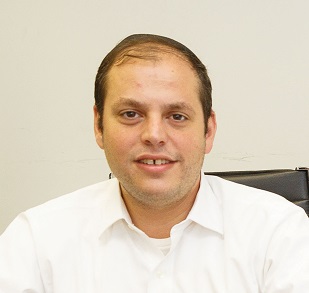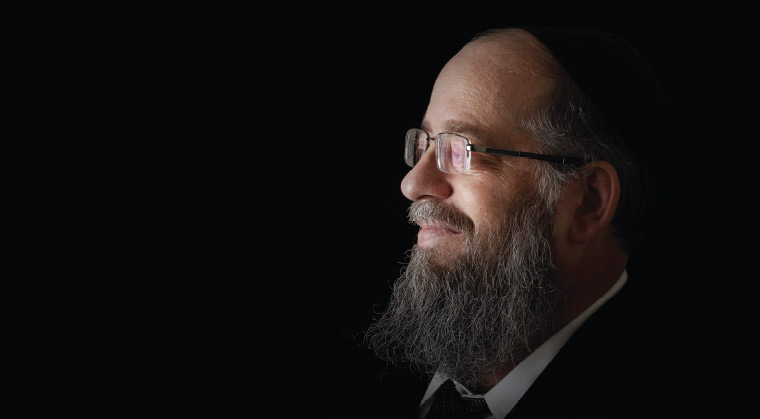Donor Cell



“Even if a donor is found under the current medical system it might be months before the transplant can be performed, and many patients can’t survive that wait. I decided then that I would do everything in my power to expedite the bureaucratic process” (Photos: Elchanan Kotler)
Sunday, 4 Tishrei 5778 Har Nof, Jerusalem
For Rabbi Yeshayahu Heber, the first workday of the new year, like every other day of the year that had just ended, began at sunrise on behalf of the dozens of kidney transplant patients he’s in touch with on a regular basis. It was the morning of Tzom Gedalyah, and his phone was ringing with halachic and practical questions: Were they required to fast? Should they fast until midday? What should they be drinking?
Rabbi Heber — founder of Matnat Chaim, a nonprofit organization that matches voluntary kidney donors with patients on a transplant waiting list independent of certain government protocols — answered each question with utmost patience, addressing every caller with warmth and solicitude, even though all the answers were the same. At 7:30, he picked up his tallis and tefillin and set out for shul. But when he stepped outside, he was in for the shock of his life.
Several police cars had blocked the entrance to the building, and a large group of onlookers had gathered outside. Nine burly cops were standing in a circle, awaiting instructions. Why had a veritable battalion of policemen suddenly descended on a quiet residential street in Har Nof? Rabbi Heber too was curious to find out, but before he could take more than a few steps, the squad leader approached him.
“Are you Rabbi Heber?” he asked.
“Yes,” the rabbi confirmed.
“You’re under arrest.”
It was a moment of utter disbelief. Rabbi Heber, a distinguished community activist, faculty member of a prominent yeshivah and a man who’d dedicated years of his life to chesed, was suddenly placed under arrest like a common criminal.
“We have a search warrant,” the commander announced. “We’re going inside.”
Rabbi Heber made no effort to resist the search — not that it would have helped him. But he had one request. “You can search for anything you want,” he said. “But do me one favor: My daughter is supposed to be leaving for school in about eight minutes. Please wait until she leaves. Why should she be traumatized by the sight of her father coming into the house surrounded by policemen?”
The request was coldly refused. “We’re going in now,” the commander insisted. “We don’t want to waste any time.”
The humiliating investigation had been sparked by the complaint of some Health Ministry personnel who claimed that Matnat Chaim kidney recipients were bumped to the top of the waiting list in exchange for donations to the organization. While government waiting lists remain bogged down by red tape, Matnat Chaim donors are allowed to give their organs to a recipient of their choosing or to an unspecified recipient, provided that “there is a medically-suitable recipient for the donated organ,” but the Health Ministry has complained that the policy leads to possible discrimination, noting that most of Matnat Chaim’s donors request Jewish recipients. (Kidney donors working within the framework of the Health Ministry are not officially allowed to make any such stipulation.)
After an exhaustive search, the police managed to find only a single document: a legal opinion that Rabbi Heber had received from a prominent attorney, stating that it was, in fact, permissible for him to solicit donations for his work on behalf of people suffering from kidney disease. That piece of evidence, combined with testimonies of both donors and recipients hauled in for questioning, eventually took the wind out of the investigation that had been launched amid much fanfare — an extreme stretch of the meaning of illegal organ trafficking at best — and that was finally closed last month with little more than a wheeze.
(Excerpted from Mishpacha, Issue 732)
Oops! We could not locate your form.













